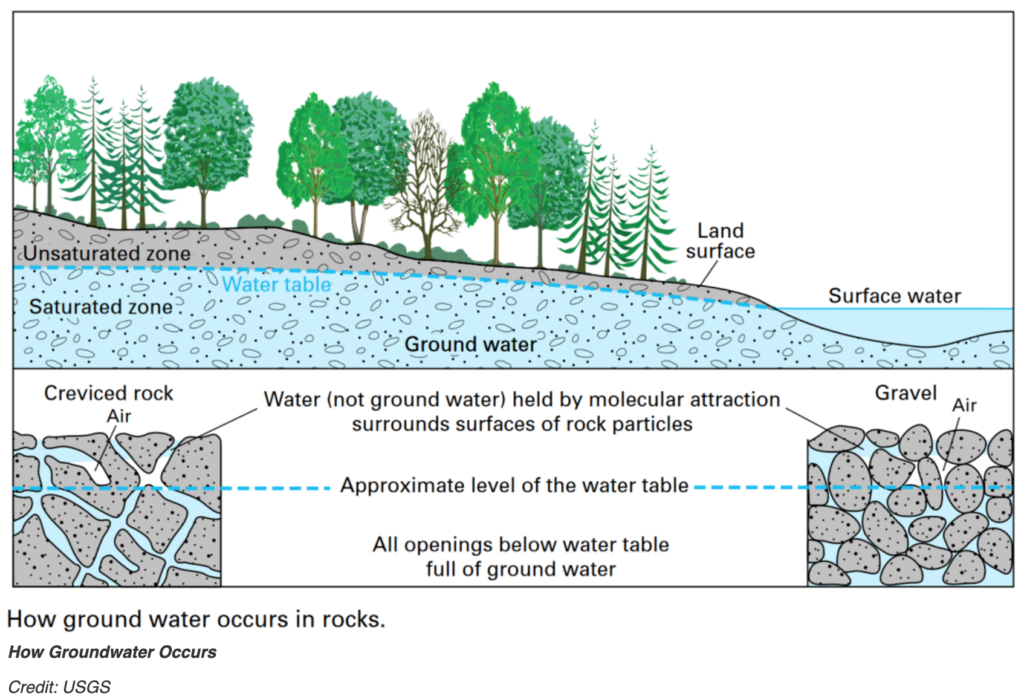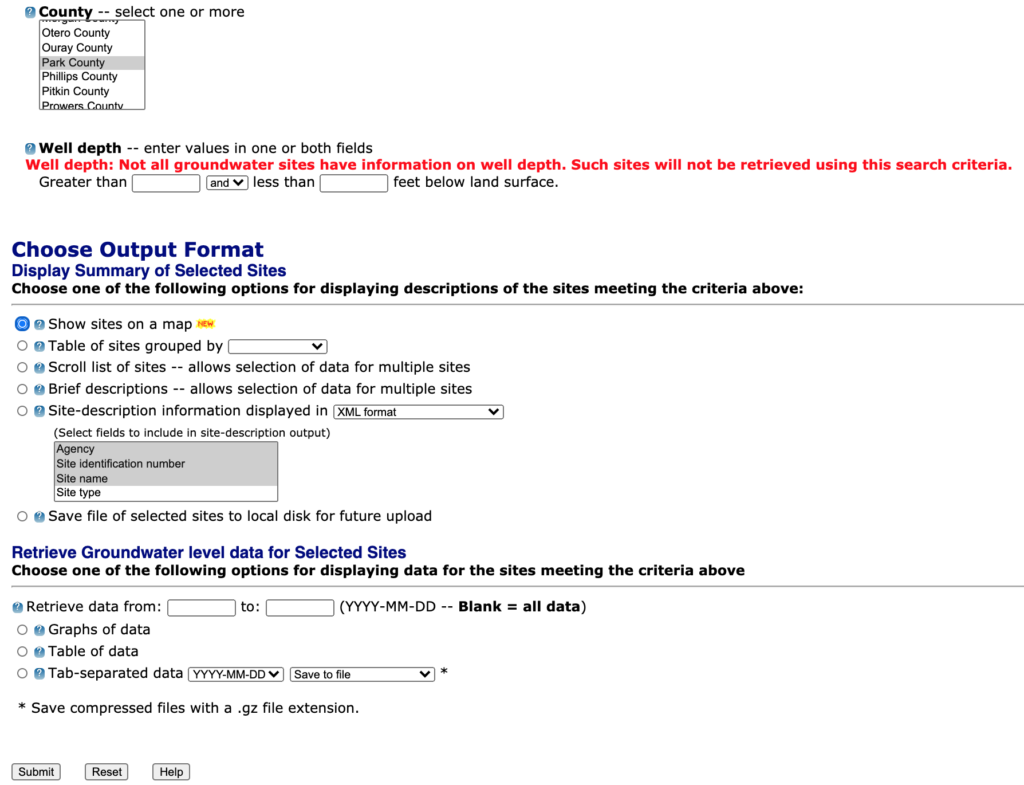In this video, Felicia talks about how to check how deep you would need to drill for installing a well on your property. If you’re wondering how to find groundwater level or how to find water table level by zip code, this video will help you understand how to find all that out.
From the video:
Are you looking to invest in land and have no idea how deep to drill for a well?
My name is Felicia I’m a land investor and a partner at Compass Land USA.
We’ve bought and sold hundreds of properties across the US.
If you give me just a few minutes of your time here I’ll show you a quick and dirty way to find out approximately how deep you’re going to need to drill on your land. We are NOT going to look at the cost of a well or how to actually drill in this video. This video is meant to give you an approximate idea of how deep you would need to go to hit the water tables, which you can use when trying to find companies to drill for you.
Ok, so this is a question that we get a lot. Especially from people who live out of state, so someone who lives in California, let’s say, but wants to invest in some Colorado camping land.
And the last thing you want is to build find that perfect Rocky Mountain property, and then feel like you’d have to drill down halfway to China to get water. Wells are really common in Colorado, especially for more rural properties. Actually, about 15% of Colorado residents get their drinking water from a private well. I’m going to quickly go over what water you’re getting in a well, and then show you the free online tool you can use to check approximate well depth.
So to understand wells and water, we need to start with aquifers. An aquifer is made up of things like rocks, gravel, and sand. They can be shallow, like a few feet below the ground, or extremely deep, like thousands of feet below the ground. Groundwater is the water that exists beneath the earth’s surface in these aquifers.

Aquifers hold a huge amount of groundwater. You drill down into the aquifer to extract groundwater using your well. Another important thing to note is that the quantity of groundwater can actually fluctuate throughout the year. In the spring when snow melts and you get some heavy rains, the levels could rise. In the summer when it’s hot and dry, levels fall.
So, to check the approximate depth you would need to drill down to hit that water supply. The USGS manages an online database for groundwater levels. It’s free to use, and a great tool because you don’t have to leave your house. This is an awesome option if you’re out of state and are looking for a rough idea.
I know these sites and dashboards can feel really confusing to maneuver, so let’s walk through an example together. So when you get to the site, you select Groundwater at the top here, and the state you’re looking for. You have all the state options there, personally, we’ve used this site for Colorado, Arizona, New Mexico, Nevada, Florida, and I think Texas.

Normally I would search Site Location by County or the lat-long box. If you’re looking for Water table level by zip code, you’re going to want to use the lat long box and pick a point within that zip code. Site Attribute I would select well depth. Make your selections and click Submit.

Select your County, and you can show the sites on a map. Click Submit again.

So now I’m looking at results for Park County. Zoom in on the map and you can click on the red balloons, which indicate the site of an existing well. You can access data for that existing well, you can see the well depth here. You can use the map to move around and find an area close to your property.
You’ll see a lot more wells in rural areas obviously, than in a city. You can use the data of existing wells around your property to get a general idea of how deep you would need to drill your well.
Keep in mind that this data might not be current, so this is an approximation tool only. Your state government probably maintains a database of drillers’ logs that have water levels recorded when a well was drilled, and consultants often have reports that contain water-level data from shallow boreholes. That information might be harder to get, but you can utilize that as well.
Now if you want to be really certain, like 100%, your best bet is to contact a company out near the property that drills wells and can give you more exact numbers. While you’ve got these guys on the phone you can also talk to them about approximate costs based on how deep they would need to drill.
I’ve not personally had a well installed on any of our properties, so if you have done this, leave a comment below and let me know how that went. I’d be curious to hear about your experience and see if I can learn something from it.🙂
A couple of other things you need to know about wells. First, you need a permit. In most cases, the licensed well driller will help you fill out the necessary paperwork with the County or state. And once the form is approved and the well is completed, you’re pretty much done with the paperwork, most permits are good for the life of the well and don’t need to be renewed.
Second, you are likely responsible for getting your well water tested and making sure it’s safe. This might be different depending on where you’re at, but in most cases, it’s the responsibility of the well owner.
It’s important that you test your well water because there could be contaminants in there that will make you sick. You can contact your County or state health department for certified labs that do water testing. The cost will vary depending on the lab and the tests they do.
Ok so there we have it, you know how to do a quick and dirty check for approximate well depth!
I hope you found this video helpful! If you made it this far, thank you so much for watching, and for taking the time to educate yourself on how to become a smarter land buyer.
Please don’t forget to leave a comment, let me know if this was useful for you, leave a question – I’ll reply with your answer. And make sure you subscribe to our channel. We do lots of informative land buying videos like this as well as pretty cool custom property tour videos.
Thank you so much for watching, and I’ll talk to you soon. 🙂
Are You Looking for More Info?

How You Can Become a Land Buying Expert – Download our FREE Guide here. Or, you can feel free to contact us anytime if you have questions, want to easily and safely buy land, or want to just learn more about how we can help people like you search for land as an investment.
Get the FREE Guide and then give us a call at (313) 349-0434 and we’ll discuss how you can easily buy land with little money using our automatic approval owner financing.



Well-water is really great. I find that, because of the natural minerals in it, it literally has a different flavor than tap water from a suburban home. Personally, if I could, I would get a well drilled in my backyard if I wasn’t renting. I’d like to have that peace of mind that comes with that.
Hey Jay. I agree, there is a different taste to well water! I can see the peace of mind aspect as well. I’d much rather have a well than pay for plastic water bottles, that’s for sure!
what a nice video.
I am a patent attorney and live in plano texas. i have two house close to each other. I feel there was a creek running underneath the ground close to my house, i base this on the fact that there are certain native trees long the path, the developer did not knock all of them down. going through your exercise I think my water depth maybe around 371 feet for a well in a my county, but this site is 30 minutes from my house. i dont see other sites close to me.
– i like that fact you try to help people buy land, i think my younger daughter needs some land. oh back to the well, i know an old house that has a well, but no one lives there, i think i was probably a real well and one time. nothing shows up in my city of Plano Texas on the usgs site.
Hi John! Thanks for reaching out. I’m glad you were able to follow the exercise and get a sense of the water depth near your house. It’s too bad that it’s not a bit closer to your actual location. Unfortunately, we rely on USGS data and I’m not sure how often they update their database. Maybe if they update it soon, you can get an approximation closer to your home. If your daughter needs help buying land or wants some more info on how the process works, we’re happy to answer any questions she has. You can call or text us at (313) 349-0434. Good luck to both!
Hi! Wanna know something? My uncle is so sure that he just discovered an abandoned water well right outside his fruit farm last week and plans to fully utilize it for irrigation purposes by digging it even deeper. For me, before he does anything else I believe he must hire a professional to carry out the process safely. As you mentioned earlier, our well water has to be tested to determine if there’s any possible pollutant which may be harmful to our wellbeing.
I really appreciate the picture you provided to explain the difference between creviced rocks and gravel. It really helps to understand the geological issues better. I am about to install my first borehole water system as it is quite popular in my area, but I didn’t think it was my responsibility to make sure the water is safe. It seems I will have to turn to using some kind of construction management software to keep all the permits, contracts and reports in one place. Otherwise I’m afraid to imagine how much paper that could be. And I am even more afraid of how easy it is to lose one document or just spill coffee on it. Another advantage of this app is the ability to create workflows, so I will be sure that everything will be done on time. I hope that I won’t have many problems with construction or at least I will be able to reduce them thanks to this.
Hi Fluix. I’m happy you found the info helpful! It helps motivate me to write more content knowing that people find it useful :). This app sounds awesome, would you mind sharing the name of it?
Surely! It’s exactly what it’s called – Fluix. You can check it via the link in the name, or simply google it. I hope you’ll find it useful as much as I do :).
My uncle is so sure of himself that he just found an abandoned water well outside of his fruit plantation and intends to use it extensively for irrigation by excavating it further deeper. To conduct the process safely, in my opinion, he should first employ an expert before moving further. Our well water has to be tested to see if any pollutants might be damaging to our health, as you said previously.
Hi Elle. Triangulating with an expert is a great idea! You don’t want to be drinking contaminated water. I hope it works out well for him 🙂
We’ve been experiencing drought in our town lately so my parents are thinking about getting a water well drilling installed on our property. I think it’s a good idea, especially after reading your article. Thanks for mentioning that your best option is to get in touch with a drilling business that is close to the property so they can provide you with more precise figures. I love that you added how while you’ve got these men on the phone, you might also ask them how much it may cost to drill a hole that deep. We’ll keep it in mind.
Hi Lily. I’m glad you found this article helpful! If you’re looking for a backup water option and you have the ability to drill a well, I’d say it’s not a bad idea. Local experts should be able to help you out 🙂 I hope the process goes smoothly for you!
My parents are considering drilling a water well on our property because our town has recently been experiencing drought. After reading your article, I believe it to be a good idea. Thank you for pointing out that the best course of action is to contact a drilling company that is close to the property so they can give you more exact figures. I like how you mentioned that you could also ask these men how much it might cost to drill a hole that deep while you have them on the phone. We’ll remember it.